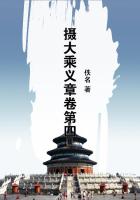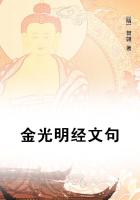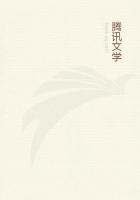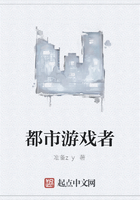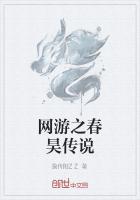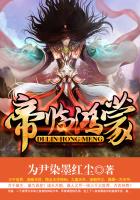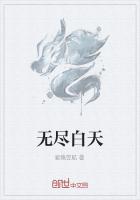It was two in the afternoon ere the first boat was beached,and the long procession of chests and crates and sacks began to straggle through the sandy desert towards Equator Town.The grove of pandanus was practically a thing of the past.Fire surrounded and smoke rose in the green underbush.In a wide circuit the axes were still crashing.Those very advantages for which the place was chosen,it had been the king's first idea to abolish;and in the midst of this devastation there stood already a good-sized maniap'and a small closed house.A mat was spread near by for Tembinok';here he sat superintending,in cardinal red,a pith helmet on his head,a meerschaum pipe in his mouth,a wife stretched at his back with custody of the matches and tobacco.Twenty or thirty feet in front of him the bulk of the workers squatted on the ground;some of the bush here survived and in this the commons sat nearly to their shoulders,and presented only an arc of brown faces,black heads,and attentive eyes fixed on his majesty.Long pauses reigned,during which the subjects stared and the king smoked.
Then Tembinok'would raise his voice and speak shrilly and briefly.
There was never a response in words;but if the speech were jesting,there came by way of answer discreet,obsequious laughter -such laughter as we hear in schoolrooms;and if it were practical,the sudden uprising and departure of the squad.Twice they so disappeared,and returned with further elements of the city:a second house and a second maniap'.It was singular to spy,far off through the coco stems,the silent oncoming of the maniap',at first (it seemed)swimming spontaneously in the air -but on a nearer view betraying under the eaves many score of moving naked legs.In all the affair servile obedience was no less remarkable than servile deliberation.The gang had here mustered by the note of a deadly weapon;the man who looked on was the unquestioned master of their lives;and except for civility,they bestirred themselves like so many American hotel clerks.The spectator was aware of an unobtrusive yet invincible inertia,at which the skipper of a trading dandy might have torn his hair.
Yet the work was accomplished.By dusk,when his majesty withdrew,the town was founded and complete,a new and ruder Amphion having called it from nothing with three cracks of a rifle.And the next morning the same conjurer obliged us with a further miracle:a mystic rampart fencing us,so that the path which ran by our doors became suddenly impassable,the inhabitants who had business across the isle must fetch a wide circuit,and we sat in the midst in a transparent privacy,seeing,seen,but unapproachable,like bees in a glass hive.The outward and visible sign of this glamour was no more than a few ragged coco-leaf garlands round the stems of the outlying palms;but its significance reposed on the tremendous sanction of the tapu and the guns of Tembinok'.
We made our first meal that night in the improvised city,where we were to stay two months,and which -so soon as we had done with it -was to vanish in a day as it appeared,its elements returning whence they came,the tapu raised,the traffic on the path resumed,the sun and the moon peering in vain between the palm-trees for the bygone work,the wind blowing over an empty site.Yet the place,which is now only an episode in some memories,seemed to have been built,and to be destined to endure,for years.It was a busy hamlet.One of the maniap's we made our dining-room,one the kitchen.The houses we reserved for sleeping.They were on the admirable Apemama plan:out and away the best house in the South Seas;standing some three feet above the ground on posts;the sides of woven flaps,which can be raised to admit light and air,or lowered to shut out the wind and the rain:airy,healthy,clean,and watertight.We had a hen of a remarkable kind:almost unique in my experience,being a hen that occasionally laid eggs.Not far off,Mrs.Stevenson tended a garden of salad and shalots.The salad was devoured by the hen -which was her bane.The shalots were served out a leaf at a time,and welcomed and relished like peaches.Toddy and green cocoa-nuts were brought us daily.We once had a present of fish from the king,and once of a turtle.
Sometimes we shot so-called plover along on the shore,sometimes wild chicken in the bush.The rest of our diet was from tins.
Our occupations were very various.While some of the party would be away sketching,Mr.Osbourne and I hammered away at a novel.We read Gibbon and Carlyle aloud;we blew on flageolets,we strummed on guitars;we took photographs by the light of the sun,the moon,and flash-powder;sometimes we played cards.Pot-hunting engaged a part of our leisure.I have myself passed afternoons in the exciting but innocuous pursuit of winged animals with a revolver;and it was fortunate there were better shots of the party,and fortunate the king could lend us a more suitable weapon,in the form of an excellent fowling-piece,or our spare diet had been sparer still.
Night was the time to see our city,after the moon was up,after the lamps were lighted,and so long as the fire sparkled in the cook-house.We suffered from a plague of flies and mosquitoes,comparable to that of Egypt;our dinner-table (lent,like all our furniture,by the king)must be enclosed in a tent of netting,our citadel and refuge;and this became all luminous,and bulged and beaconed under the eaves,like the globe of some monstrous lamp under the margin of its shade.Our cabins,the sides being propped at a variety of inclinations,spelled out strange,angular patterns of brightness.In his roofed and open kitchen,Ah Fu was to be seen by lamp and firelight,dabbling among pots.Over all,there fell in the season an extraordinary splendour of mellow moonshine.
The sand sparkled as with the dust of diamonds;the stars had vanished.At intervals,a dusky night-bird,slow and low flying,passed in the colonnade of the tree stems and uttered a hoarse croaking cry.

